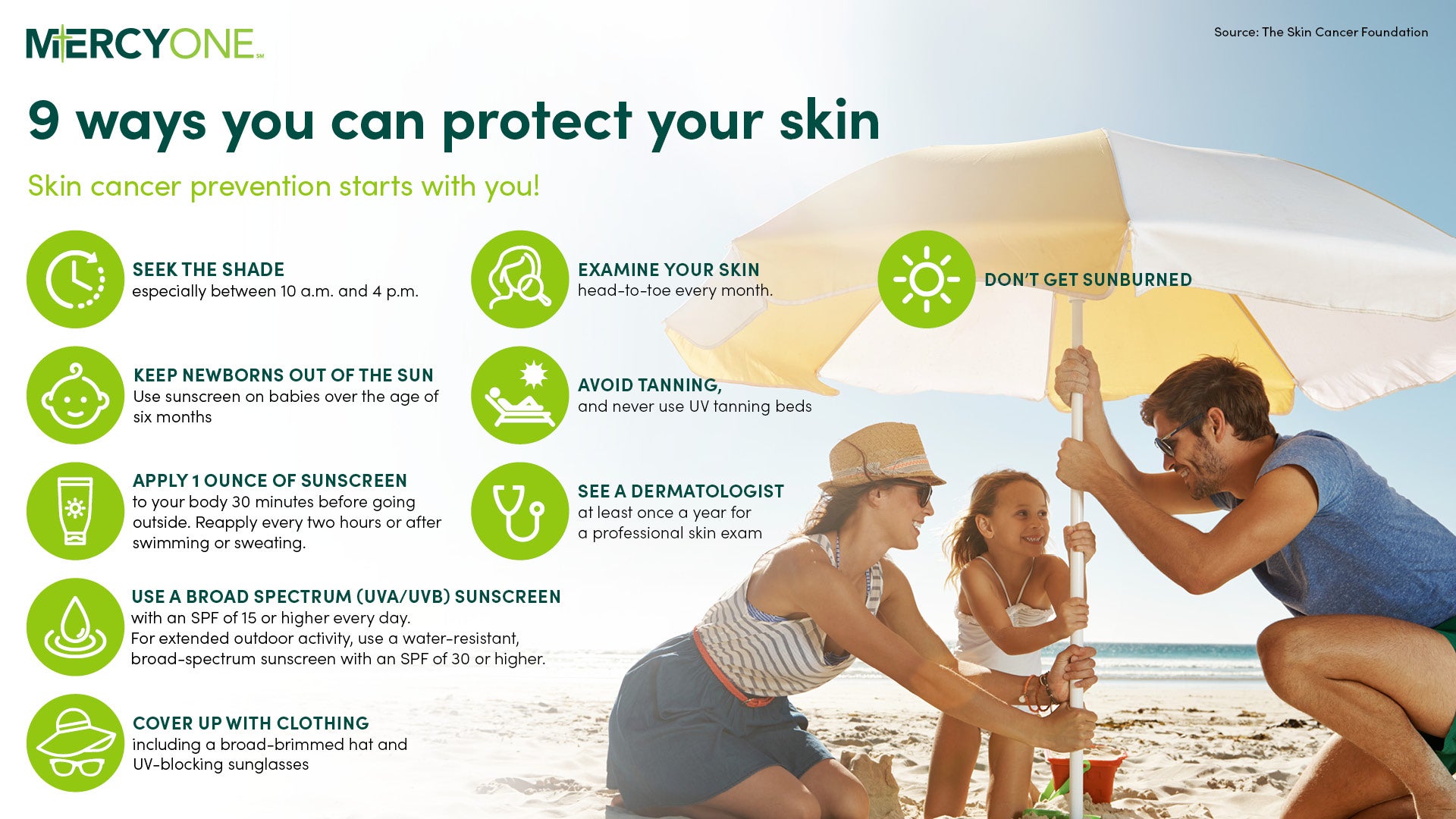Tips to help protect your skin this summer
May 20, 2021

By: Yen Chen Liu, MD
With warmer weather and brighter, longer days, we are all getting outside more. Practicing sun safety daily helps protect your skin from damage. Here’s what you need to know to care for your skin this summer.
Why do I need to wear sunscreen?
The sun emits a wide spectrum of light including ultraviolet-A (UV-A) and ultraviolet-B (UV-B). These are the two most common types of UV rays that contribute to skin cancer. They damage the skin on a DNA level that can eventually lead to skin cancer. Studies have shown that sunburns, especially blistering sunburns during childhood, can dramatically increase the risk of skin cancer later in life. It’s important that everyone in your family wears sunscreen to block out these harmful rays and reduce the risk of skin cancer.
What type of sunscreen do I need?
While The Skin Cancer Foundation recommends using a sunscreen with SPF of 15 or higher for everyday use, I advise sunscreen with SPF of 30 or higher to provide stronger protection. Remember, both UV-A and UV-B can cause skin cancer, so choose sunscreen that protects against both. This will be labeled as protecting against a “broad spectrum” of rays.
What should I look for during a self-examination of my skin?
There are three things to look for when examining your moles and skin: symmetry, borders and color. If you notice any changing moles that appear asymmetrical, have irregular borders or multiple colors, please contact a health care professional to evaluate the lesion. Any sore that hasn’t healed or is a painful lesion should be evaluated as well.
Tips to protect your skin
- Seek the shade especially between 10 a.m.-4 p.m.
- Don't get sunburned.
- Keep newborns out of the sun and use sunscreen on babies six months and older.
- Examine your skin head-to-toe every month.
- Apply one ounce of sunscreen 30 minutes before heading outside. Reapply every two hours and after swimming or sweating.
- Cover up with clothing including a wide brim hat and UV-blocking sunglasses.
- See a dermatologist at least once a year for a skin exam.
- Avoid tanning and never use tanning beds.
Skin care for sun-exposed workers
If you have noticed any changes to your skin or have any questions about what your risk of skin cancer is, reach out to a MercyOne provider to schedule an appointment.
